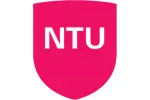We're moving! This site will be relocating to goingto.university in 2026. Please update your bookmarks to the new address.


the United Kingdom
Nottingham Trent University (NTU)| The award | How you will study | Study duration | Course start | Domestic course fees | International course fees |
|---|---|---|---|---|---|
| MRes | Full-time, Part-time | - | January, September, January | - | - |
Are you an analytical professional seeking to refresh your knowledge of analytical chemistry? Are you a recent graduate in a wide range of sciences allied to chemistry?
We can provide you with the advanced knowledge, skills and attributes required to start or progress a career in Analytical Chemistry and its sub-disciplines, or act as a base for entry to PhD studies. This Masters would be a good stepping stone for those in Biology, Chemistry, Environmental Science, Forensic Science and Physics.
This course enables you to develop and further your knowledge of chemical analysis, with a range of core modules. You can expand your interests further by selecting module options and an analytical chemistry lead research project within one of our diverse range of internationally recognised research groups.
You'll study chromatography, spectroscopy, and spectroscopic methods in drugs analysis. You'll gain knowledge in advanced instrumentation and analysis covering special topics in metabonomics and metabolomics, high-throughput screening, drugs and pharmaceuticals in the environment, drugs in biological samples, and receptor activation.
The Chemistry team is comprised of academic and support staff that are subject experts in organic, inorganic, physical and analytical chemistry
Postgraduate open events: We hold postgraduate open events throughout the year. Find out more and book a place.
Any questions?
Email us
Telephone: +44 (0)115 848 8351
What you'll study
You will study four modules which will include a research project. If you are part-time student, you will continue to study the second year from the modules listed below.
Modules
Core Modules
Optional modules
Choose one module from the following:
Research project title examples
Learn a new language
Alongside your study you also have the opportunity to learn a new language. The University Language Programme (ULP) is available to all students and gives you the option of learning a totally new language or improving the skills you already have.
Learning a new language can:
Find out more about the ULP.
Gain hands-on experience
As well as working and studying under the direction of world-leading pharmaceutical and medicinal science staff, you will gain hands-on experience on a variety of modern instrumentation including:
Key stats
Course specification
View the full course specification
Please note that course specifications may be subject to change
How you're taught
Study hours
Contact hours for a 20 cp modules are typically around 50 hours, with a further 150 hours expected from you for directed and independent study.
Assessment
Careers and employability
At Nottingham Trent University, we know that your employability and job prospects are crucial factors in your choice of university. You need to know that your postgraduate degree will be worth the time and money you spend on it.
95% of our postgraduates are employed or engaged in further study six months after leaving (latest DLHE Survey Postgraduate results 2014/15).
Our strength lies in the relevance of our degrees to the real world. In all subject areas, we encourage you to recognise your transferable skills and their application to a multitude of careers. By taking an Analytical Chemistry postgraduate degree, you will benefit from the progressive development of a variety of skills, such as advanced laboratory techniques and the critical analysis and synthesis of a breadth and depth of relevant chemistry-specific research.
Chemistry graduates have gone on to work in a variety of job markets, and recent employers include:
Although this course does not offer a formal placement, it is vocationally focused and benefits from strong links with industry.
UK Fees
Tuition fees 2017
Tuition fees 2018
Please see our Fees and Funding page for details and scholarships.
International Fees
Tuition fees 2017
Tuition fees 2018
Please see our Fees and Funding page for details and scholarships.
Funding
We offer prestigious scholarships to new international students holding offers to study at the University.
Below are some suggested courses at other providers that you may also be interested in:
Graduate Diploma of Engineering (Mechanical) Graduate Diploma
Engineering Institute of Technology
Find out moreMaster in Global Leadership Pre-Masters, Masters Degree, Online Course
Zurich Business School (UIBS)
Find out moreGraduate Diploma in Bible and Theology Graduate Diploma, Graduate Diploma
University of Wales Trinity Saint David
Find out moreGraduate Diploma of Technology (Software Engineering) (FedUniv at IIBIT) Graduate Diploma
International Institute of Business & Information Technology (IIBIT)
Find out moreIf you do not meet the entry requirements for this course then consider one of these postgraduate preparation courses from another institution:
Graduate Diploma of Technology (Software Engineering) (FedUniv at IIBIT)
International Institute of Business & Information Technology (IIBIT)
Find out moreThere are 494 other courses listed from Nottingham Trent University (NTU). A selection of these are displayed below:
Join the StudyLink email list and never miss a chance to turn your study abroad dreams into reality!
